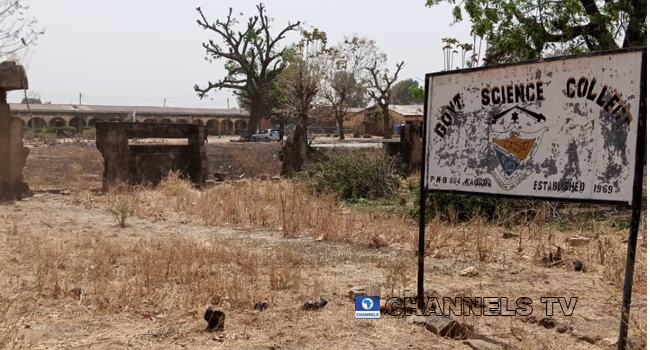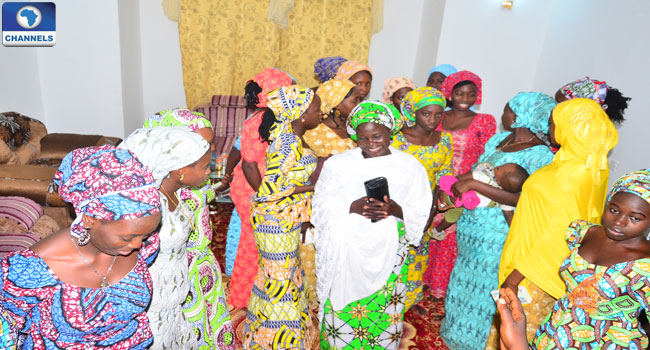
Mr Omeri’s comment is coming on Wednesday, a day after president Jonathan met with the parents of the abducted girls and some of the girls that escaped from the members of the terrorist group, Boko Haram, that abducted the girls form their school’s dormitory in Chibok, Borno State, on April 14.
Critics had said that the meeting had been long overdue, but Omeri insisted that the peculiar nature of the Chibok issue had led to the purported delay.
One hundred days are gone and over 200 girls are still in the custody of their abductors waiting for the rescue day, that President Jonathan had promised since they were abducted.
Again, at the Tuesday meeting, President Jonathan reassured the parents of the abducted girls that their children would be rescued soon.
Mr Omeri said that the meeting was quite frank, as it was able to put issues in perspective and ensured that parents got assurance from the President.
“At the meeting, the parents were able to communicate what happened to the President.
“When the girls that escaped from the member of Boko Haram after they were taken on April 14 told their stories, they said that they were helped by Nigerians who they met in the bush and that goes further to state that the Nigerian spirit of wanting to help each other is still in us.
“The President would have gone to Chibok, but the concentration as at the time it happened was towards rescuing the girls and stopping the insurgency and that may have explained the initial gap in meeting the parents,” Mr Omeri explained.
“Finding Peace Where It Is Missing”
While the military is striving to quell the insurgency and attacks mostly in the northeast by terrorists, calls have been made for adequate orientation of citizens geared towards establishing and enforcing peace.
Mr Omeri said that quite a number of orientation programmes were ongoing.
“Before the abduction, we had initiated a workplace peace orientation programme. I visited a number of camps for displaced persons and cattle ranches and farmers residents. We came together to design architecture that will sustain peace building and peace enforcement.
“Participants demonstrated the commitment to finding peace where it is missing and supporting the government’s efforts to ensure that peace permeates the system.
“We will take external measures to ensure that the peace project reaches all corners of the country,” he said.
Few weeks after the girls were abducted, several protests were held in Nigeria, but a group, the ‘Bring Back Our Girls Campaigners’, had continued a sit-out protest at the Unity Fountain in Abuja, demanding for more efforts from the government in securing the girls rescue.
However, the government had asked the group to direct their protest at the abductors of the girls and not at the government, alleging that the protest has being politicised.
Asked what his thought was about the group’s protest, Mr Omeri said that to the extent that the protesters were focusing their attention on the global challenge on terrorism, it was a just course.
He, however, said: “Where the issue at hand is taking us away from the primary concern of rescuing Chibok girls, we will certainly not be in the same boat.
“When the messaging is shifting, then the local Bring Back Our Girls could be said to be communicating the wrong message and attracting attention.
“‘He who has taken should bring back’ that is what they are asking for and we should all make that demand,” he emphasised.
Where Are The Girls?
On the strength of the military to tackle the Boko Haram sect, Mr Omeri pointed out that the military had ruled Nigeria for long years and that most of the leaders had one experience or the other with the military.
“That is not to say that they do not have military equipment because they were able to use what they had to achieve peace and secure territories within Africa and even outside Africa.
“We should commend the administration that has seen the need for us to re-kit and retune military hardware. We need to have and build a sustainable stock and asset for the military,” he said.
A question that has remained in the mouths of many Nigerians is: “Where are the girls”?
A military Chief in May said that the locations of the girls had been identified and that the military was making plans to rescue them but were being cautious to ensure that there would not be casualties.
Mr Omeri also confirmed the claims but said that he would not disclose where the girls were or the time they would be rescued, citing security reasons.
Meanwhile, military operations have continued in the northeast against the Boko Haram sect that are demanding for an Islamic State and an end to western education, with international community providing support in area of intelligence gathering.




